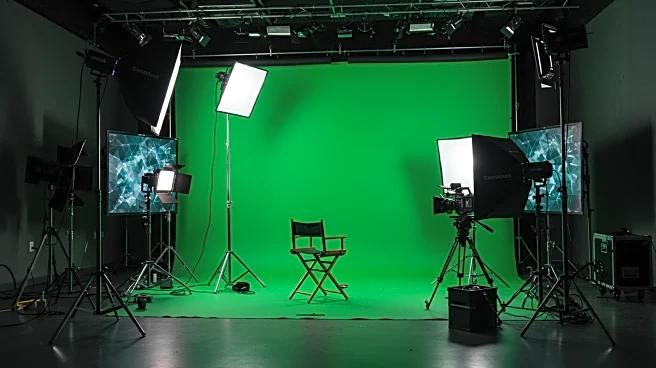What's Happening?
Alan Cumming, known for his role as Nightcrawler in the X-Men series, has shared insights into his experience filming the upcoming Avengers: Doomsday. Cumming revealed that he completed his scenes in isolation, utilizing green screen technology extensively. This approach was partly due to scheduling conflicts, as Cumming needed to wrap up his scenes early to work on another project, The Traitors. The actor noted that during filming, he often did not know who he was supposed to be acting with, as characters were given fake names and face replacements were used. Despite these challenges, Cumming described his return to the Nightcrawler character as a healing experience, contrasting it with his previous difficult experiences on X2 under director Bryan Singer.
Why It's Important?
The use of green screen technology and isolated filming in Avengers: Doomsday highlights the evolving nature of film production, especially in large-scale blockbusters. This method allows for greater flexibility in scheduling and can accommodate actors' commitments to multiple projects. However, it also raises questions about the impact on actors' performances and the authenticity of on-screen interactions. The film's approach reflects broader industry trends towards digital and remote production techniques, which can affect the dynamics of filmmaking and potentially alter the audience's experience.
What's Next?
Following Avengers: Doomsday, Marvel Studios plans to introduce a new, younger X-Men team in a fresh movie directed by Jake Schreier. This semi-rebooted timeline aims to bring new energy to the franchise, potentially attracting a younger audience and expanding the Marvel Cinematic Universe. The transition to a new team could also lead to changes in character dynamics and storylines, offering opportunities for innovative storytelling and character development.
Beyond the Headlines
The reliance on green screen technology and isolated filming may have ethical implications regarding the working conditions of actors and the authenticity of their performances. As digital techniques become more prevalent, the industry may need to address how these methods affect the creative process and the mental well-being of actors. Additionally, the shift towards digital production could influence the cultural perception of filmmaking, as audiences become more accustomed to CGI-heavy movies.










